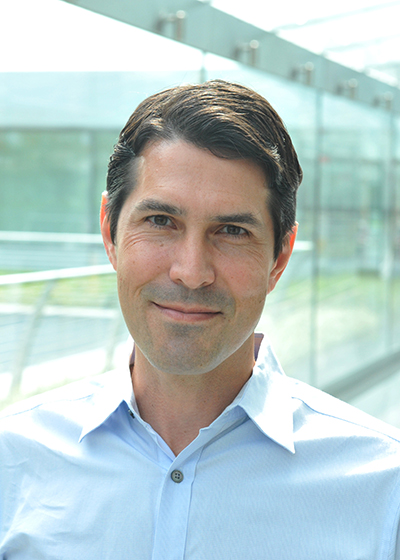Researchers Unveil New Approach to Flip the Script on Drug Addiction
Supported by a $1.3 million grant from the W.M. Keck Foundation, Scott Sternson and his team are utilizing new technology to disrupt feedback processes related to drug addiction
Story by:
Published Date
Article Content
Scientists at the University of California San Diego are working to flip the script on drug addiction with a $1.3 million grant from the W.M. Keck Foundation. Their new approach, called negative feedback chemogenetics, works by leveraging the body’s biochemical feedback processes to disrupt pathways in the brain associated with drug addiction.
Rather than developing new molecules that modulate signaling pathways in the brain, which is the standard pharmacological approach to treating addiction, negative feedback chemogenetics uses artificial proteins that detect drugs and respond by causing the brain to shut down pathways in the brain that drive drug-seeking behaviors.

“We’re essentially asking what would happen if, instead of a drug making you want more and more of that drug, we could encourage the opposite effect, which would make it much more manageable for people to abstain,” said Scott Sternson, PhD, a professor in the Department of Neurosciences at UC San Diego School of Medicine. Sternson is principal investigator on the grant and is also an Investigator with the Howard Hughes Medical Institute. “We are grateful to the W.M. Keck Foundation for supporting this innovative research, which we believe has the potential to greatly benefit society.”
Chemical feedback processes are ubiquitous in biology, but they are difficult to study and leverage in treatments because interfering with the receptors involved in the brain’s feedback pathways can cause unintended effects elsewhere. Designing new receptors gets around this problem because they can be engineered to only act in certain cell types and in certain conditions.
While the present research, currently being studied in rodent models, prioritizes addictive drugs, the researchers also plan to apply the principles of negative feedback chemogenetics to other pathways, such as those involved in overeating. The researchers also emphasize that their work could be the beginning of a new way to tackle a variety of health problems, not just those associated with addictive behaviors.
“We believe that these tools and concepts may eventually lead not only to new gene therapies for addiction and obesity, but also could have broader applications across health and medicine,” said Sternson. “Our synthetic physiology approach offers a powerful technical and conceptual solution for studying chemical feedback signaling in organisms, which could have uses we haven’t even considered yet.”
About the W. M. Keck Foundation
The W. M. Keck Foundation was established in 1954 in Los Angeles by William Myron Keck, founder of The Superior Oil Company. One of the nation’s largest philanthropic organizations, the W. M. Keck Foundation supports outstanding science, engineering and medical research. The Foundation also supports undergraduate education and maintains a program within Southern California to support arts and culture, education, health and community service projects.
 LEARN MORE ABOUT HOW YOU CAN SUPPORT UC SAN DIEGO »
LEARN MORE ABOUT HOW YOU CAN SUPPORT UC SAN DIEGO »
Share This:
You May Also Like
Stay in the Know
Keep up with all the latest from UC San Diego. Subscribe to the newsletter today.



